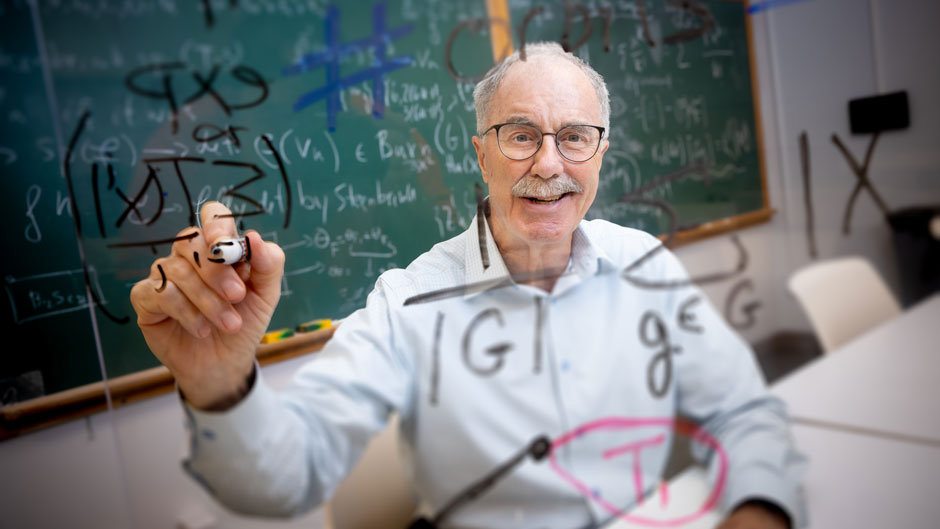Philip Hanlon didn’t set out to build a career in university administration, but after 15 years as a mathematics professor at the University of Michigan, he was presented with an unexpected opportunity.
A new dean at the university, who had met Hanlon through the search committee for the position, asked the mathematician if he wanted to be an associate dean in the College of Literature, Science, and the Arts.
“I asked her which one, and she said she was going to clean house, so any of them,” Hanlon recalled. “I knew people paid attention to money, so I said I’d like to do the budget job, having never done a budget in my life.”
With help from the college’s staff, Hanlon quickly learned the ropes, and within a few years, he had been tasked with overseeing the budget for the entire university. That role led to his promotion to provost and executive vice president for academic affairs at the University of Michigan and later, in 2013, to his appointment as the president of Dartmouth, his alma mater.
During his decade-long tenure at Dartmouth, Hanlon oversaw a record $3.7 billion fundraising campaign, a major expansion in financial aid, and a rise in the institution’s reputation as a research powerhouse, among many other accomplishments.
Over the past semester, Hanlon has shared the knowledge he gained at Dartmouth with the University of Miami community. As a Distinguished Presidential Scholar, he has met with members of the university’s leadership team to offer advice.
“Phil Hanlon is a visionary leader and scholar who enlightens our world through the power of advanced problem solving and mathematics,” said University of Miami President Julio Frenk. “The University of Miami has been profoundly enriched by Phil's tenure as a Distinguished Presidential Scholar, as his unique perspectives and talents have contributed to our mission of nurturing intellectual curiosity, advancing the boundaries of knowledge, and seeking innovative solutions to complex global issues.”
Hanlon has also spent time working on mathematics research with two of his long-time collaborators in the College of Arts and Sciences: Michelle Wachs, a professor in the Department of Mathematics, and Richard P. Stanley, an Arts and Sciences Distinguished Scholar who splits his time between the University of Miami and the Massachusetts Institute of Technology.
“The College of Arts and Sciences was honored to help host Phil Hanlon at the University of Miami,” said Dean Leonidas Bachas. “We have benefited greatly from Phil’s collaborations with both our mathematics faculty and the College’s leadership team, and we are grateful for his valuable contributions to our institution.”
Hanlon’s field is algebraic combinatorics, which focuses on the structures of finite sets of objects. The many ways in which you can order a set of cards or make change for a dollar are two simple examples. Combinatorics has important applications in a range of other fields including bioinformatics, computer science, and national defense. While working in academia, Hanlon spent more than a decade serving on the Director's Advisory Board for the U.S. National Security Agency.
In addition to meeting with University of Miami leadership and conducting math research, Hanlon has attended ’Canes baseball and basketball games with his wife, Gail Gentes. The couple has also explored the natural wonders of South Florida, even joining a shark tagging expedition organized by the Rosenstiel School of Marine, Atmospheric, and Earth Science.
Along the way, Hanlon said he has learned a lot about the University of Miami.
“I’ve really admired the institution,” he said. “What I’ve found is an institution that’s really on the rise.” Among other achievements, Hanlon cited the University’s recent invitation to join the Association of American Universities, a national organization of leading research institutions.
Hanlon plans to return to Dartmouth in the fall, where he is scheduled to teach a full course load. He said that while he is looking forward to teaching, he has enjoyed the opportunity to share his leadership experience with the University of Miami.
“It’s been fun to dig in, use what experience I can bring to the table, and not have all the responsibilities on my shoulders,” he said. “I’ve really enjoyed learning about the institution.”

